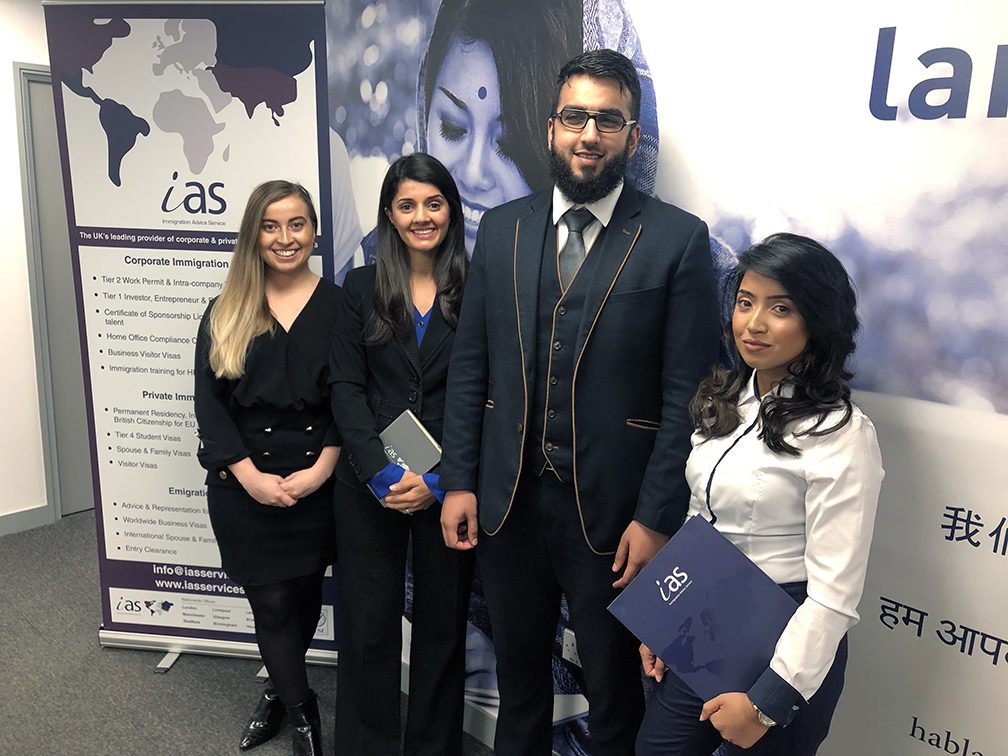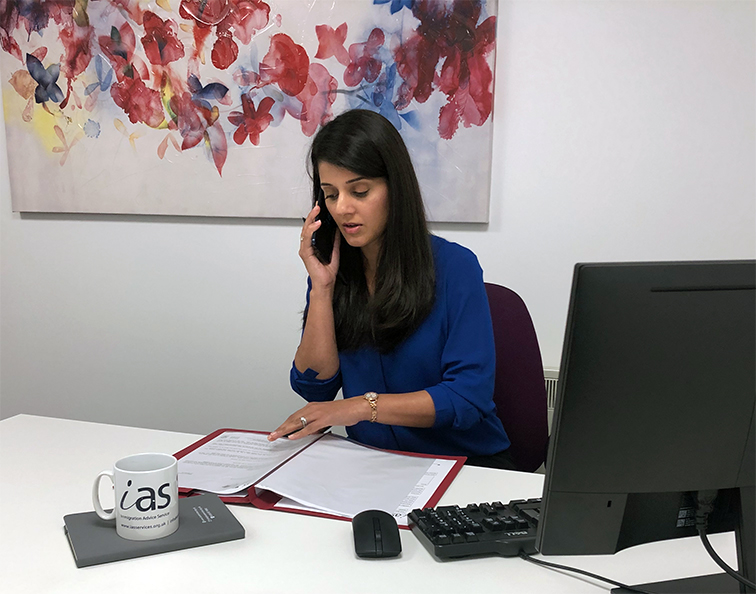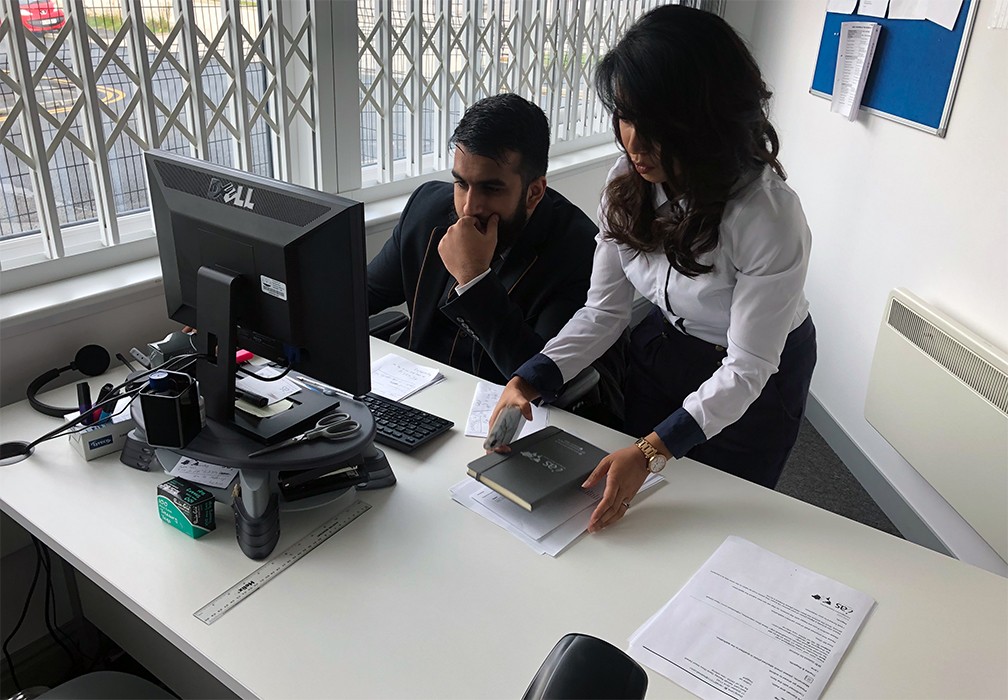Portugal D7 Visa (Retirement Visa)
Individuals from Qatar who wish to retire in Portugal or emigrate without having to rely on a salaried income could find themselves eligible for the Portugal D7 visa.
However, these visas can be complex in their requirements and eligibility. This is why it is advisable to get assistance from an experienced legal advisor who can help walk you through the process. Our team at Total Law can do this for you; just give us a call at +44 (0)333 305 9375 today.
The Portugal D7 Visa: An Introduction
The Portugal D7 visa is also commonly known as the Portugal Passive Income visa, or in many cases, the Retirement Visa. This visa acts as a route to permanent residency in Portugal and is aimed at non-EU and non-EEA citizens who do not need to rely on an active, salaried income.
This visa was introduced by the Portuguese government in 2007 to boost Portugal’s economy by attracting foreign nationals to settle in the country.
There are many benefits to this visa, including visa-free travel to much of Europe. However, after 5 years, D7 visa holders can apply for citizenship.
Yet, to obtain this visa, applicants must meet a wide array of eligibility criteria, as well as minimum financial requirements and criminal record checks.
Page Contents
- The Portugal D7 Visa: An Introduction
- The Eligibility Criteria To Apply For The Portugal D7 Visa
- Documents Required For The D7 Visa Application
- Portugal D7 Visa Application Costs & Processing Times
- How To Apply For The Portugal D7 Visa
- Validity Period Of The D7 Visa & Options To Extend
- Benefits Of The Portugal D7 Visa
- The Team At Total Law Can Help
- FAQs
The Eligibility Criteria To Apply For The Portugal D7 Visa
The Portugal Passive Income D7 Visa has one of the most minimal visa requirements of all the visas. However, applicants still need to meet the requirements for these visas and understand what is the elegibility criteria to apply.
To be considered eligible, applicants must meet the following criteria:
- Applicants must be over the age of 18.
- Applicants must be non-EU or EEA nationals.
- Applicants have to meet the passive income requirements.
- Applicants must be willing to meet the minimum residency requirements while they are in Portugal.
- All applicants need to have a clean criminal record.
- Applicants have to have a Portuguese Número de Identificação Fiscal (NIF) number.
- Applicants will need to have a Portuguese bank account.
- Applicants need to be willing to become Portuguese tax residents.
All those who apply will need to provide a variety of documents as part of their application to prove to Serviço de Estrangeiros e Fronteiras, or SEF (the Portuguese Immigration and Border Services), that they meet the eligibility requirements for this visa.
This will include providing documentation that they meet the minimum requirements for passive income. This amount will vary depending on how many family members will be travelling with you to Portugal.
Documents Required For The D7 Visa Application
Applicants will need to submit relevant documentation alongside their application to show that they meet the requirements necessary for this visa. These documents will include the following:
- The application form for the D7 visa.
- A valid passport.
- Passports need to be valid for a minimum of 6 months from the application date. Ideally, it should have 2 years of validity to allow for any potential delays in relocation or application.
- 2 photographs at passport size.
- Proof that the applicant has sufficient funds available via their passive income.
- Proof that the applicant has long-term accommodation (meaning 12 months or longer). This could include:
- A rental agreement.
- Proof of purchase for a property.
- A signed and notarized letter from a family member or friend that states they will be providing you with accommodation.
- Police records or criminal record check certificates.
- A cover letter.
- Proof that the applicant has adequate health insurance coverage.
Applicants may be required to provide additional documents, including birth certificates or marriage certificates, if they will be bringing any dependents with them to Portugal.
It is also common for applicants to be asked to provide documents including details of travel, such as a travel itinerary, or any additional documentation, such as a reference or financial guarantor.
Applicants should be aware that any documents they are submitting that are not in Portuguese will need to be translated into Portuguese by a verified, certified translator.
Portugal D7 Visa Application Costs & Processing Times
The D7 Visa for Portugal will cost around €100. However, there is also a €90 fee for a residence permit in Portugal, which will need to be obtained once you arrive in the country.
These fees need to be paid by cheque, in cash, or by money order to the Portuguese Consulate.
A majority of the costs applicable to the D7 Visa are those that are associated with the relocation process, including travel, health insurance, and accommodation. It is always wise to be completely aware of what the total cost factors will be when moving to Portugal.
It is best to build a sensible budget before applying so that you are aware it is a reasonable decision for you financially.
Typically, these visa applications will be processed in around 2 months. After this 2-month processing period, it can take an additional 4 months for an applicant’s residence permit to be processed and then issued to them in Portugal.
Applicants should be aware that if they are applying in a densely populated location such as Porto or Lisbon, they may be waiting longer. although it is possible to get an appointment with SEF if applying in a more rural area to obtain a residence permit faster.

How To Apply For The Portugal D7 Visa
There are several steps to applying for the Portugal D7 Visa.
- The first step to applying for a Portugal D7 Visa is to prepare your documents and complete the application.
The first step will include proving that you are eligible for a D7 visa and preparing all of the supporting documents and necessary paperwork needed to apply. Applicants also need to first ensure that they meet the necessary eligibility criteria, such as the minimum requirement regarding passive income.
Applicants should also ensure that they have an NIF number and a Portuguese bank account ready. Both of these things can be done from outside the country. After this is completed, applicants need to fill out the relevant application form for the visa.
2. Next, the applicant should submit their application.
With all supporting documents collected and a completed application form, the applicant should then go to their local Portuguese consulate (or embassy) and submit their application. Applicants also need to pay the relevant fees for their application at this stage of the process.
The Portuguese embassy or consulate may also request to keep a hold of your passport during the time that the application is being processed.
3. After the submission, you will receive the visa.
After the application has been processed, the applicant will receive a letter or an email notifying them of the decision made on the application. If the application gets approval, the visa will be added to the applicant’s passport.
It is best to ensure that all information in the submission for the visa is accurate and identical to the information in the applicant’s passport; discrepancies may prevent entrance into Portugal.
4. Travelling & an SEF appointment
After receiving the visa, the applicant will have 120 days from the date that the visa was issued to travel to Portugal and apply to obtain a residence permit. Should the applicant have already indicated their date of travel to Portugal, the local consulate or embassy may arrange an SEF appointment on behalf of the applicant.
If this is not the case, then the applicant will need to log onto the SEF online portal to book an appointment at the nearest SEF office to where they will be staying. If the only available date is after the date the initial visa expires, applicants can still attend this appointment and apply for their residency permit.
5. SEF appointment
This appointment should only take 20 minutes to complete. In this time, applicants will need to make sure that they take a full range of supporting documents with them to support their residency application. This includes proof of sufficient funds, the visa, proof of medical insurance, proof of accommodation, and the applicant’s NIF number.
Applicants should be prepared to fill out another application form for residency and a form that will permit the Portuguese authorities to check their criminal records.
6. Obtain residency.
Should SEF approve the application, the individual will then receive their Portuguese residency permit after 2 weeks or so after the appointment.
Validity Period Of The D7 Visa & Options To Extend
The D7 visa enables the applicant to enter the country and remain there while they wait for their residence permit to be issued to them. After this, the residence permit will enable the applicant to stay in the country for a year, after which it can be renewed for successive 2-year periods.
After 5 years, the applicant can then convert this to a permanent residence permit and eventually apply for citizenship should they wish to do so.

Benefits Of The Portugal D7 Visa
The Portugal D7 visa is one of the most appealing and accessible permanent residency routes in Europe, thanks to its benefits and low requirements. Applicants should understand what are the benefits for those who apply for the D7 visa. Some of the benefits of this visa include:
- Visa-free travel to anywhere in the Schengen area.
- Access to the Portuguese National Health Service.
- Access to Portuguese National Education Services, professional training, schools, and vocational training.
- Full protection via Portuguese law and legal system.
- Exemptions or otherwise reduced tax rates should the applicant sign up for the NHR (Non-Habitual Residency) programme.
- Being able to work in Portugal.
- Being able to pass on Portuguese citizenship to any newborn children after a year of permanent residency.
- The ability to obtain citizenship in Portugal and acquire a Portuguese passport after 5 years of permanent residency.
- A fast application process in comparison to other routes.
The Team At Total Law Can Help
Individuals from Qatar who seek a Portugal D7 visa will find this visa easier to acquire than many other visas that lead to being able to live in Portugal. Those interested in Portugal’s passive income d7 visa route can apply for the visa as long as they receive passive income that meets the passive income requirements.
It can be useful for those who wish to apply for the D7 visa to speak to an immigration lawyer at Total Law. We can help you with the application requirements and procedure, submit the application, prepare to live in Portugal, and also aid in the preparation and submission of supporting documents.
Give us a call today at +44 (0)333 305 9375 to get started!
Advice Package
Comprehensive immigration advice tailored to your circumstances and goals.
Application Package
Designed to make your visa application as smooth and stress-free as possible.
Fast Track Package
Premium application service that ensures your visa application is submitted to meet your deadline.
Appeal Package
Ensure you have the greatest chance of a successful appeal. We will represent you in any case.

The Advice Package
During this untimed Advice Session with our professional immigration lawyers in London, you will receive our comprehensive advice, completely tailored to your needs and your situation.

The Application Package
With our Application Package, your dedicated immigration lawyer will advise you on your application process and eligibility. Your caseworker will then complete and submit your forms to the Home Office on your behalf.

The Fast Track Package
Our Fast-Track Application Package is a premium service for those who need to submit their application in time with their deadlines. Your case will become a top priority for our lawyers and you will benefit from our highest-quality services.

The Appeal Package
By choosing our Appeal Package, you can rely on our lawyers’ legal knowledge and experience to ensure you have the highest chance of a successful appeal. We will also fully represent you in any hearings/tribunals.
Related pages for your continued reading.
FAQs
The low tax rate on pensions are the benefits of the D7 visa. Applicants can apply for NHR, and pension incomes are only taxed at a 10pc flat rate as long as they are sourced from abroad.
In this regard, pensions are considered passive income for the D7 visa to Portugal.
Applicants need to submit an application form to the Portuguese consulate or embassy. It is important to ensure you are eligible before you apply. If you already have a job offer or job contract, this is ideal. There is, however, a job seeker visa option.
Applicants for the D7 Visa Portugal need to show that they have a passive income of €820 per month or €9,840 per year. This is for the primary applicant. An additional spouse or parent will cost an additional €410 per person per month, and children under the age of 18 will cost an additional €246 per child per month.

